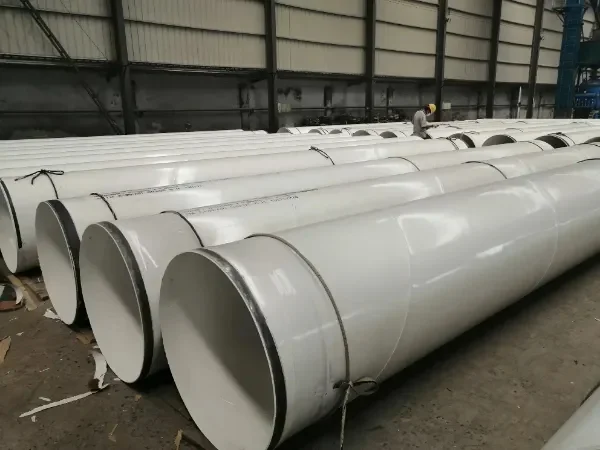Precautions for the use of steel pipes for drinking water projects
With the acceleration of urbanization, the construction of urban water supply projects is becoming more and more important. In urban water supply projects, steel pipe is a commonly used pipe material because of its high strength, corrosion resistance, and easy processing. However, there are also some potential problems with the use of steel pipes. Especially in drinking water projects, special attention needs to be paid to some precautions in order to ensure the safety and sanitation of drinking water. This article will discuss the precautions for the use of steel pipes in drinking water projects.

1. Selection of steel pipe material
The type of steel used for pipelines should be carefully selected to ensure that it is suitable for drinking water projects. Steel should be free of contaminants and meet the standards required for potable water.
2. Surface treatment of steel pipe
The surface treatment of steel pipes is crucial to the safety and hygiene of drinking water projects. Before using the steel pipe, its surface should be cleaned and treated to remove surface grease, rust, and other pollutants. In addition, attention should also be paid to whether the surface treatment of steel pipes meets national standards.
3. Installation and connection of steel pipes
The installation and connection of steel pipes are also issues that need attention in drinking water projects. When installing the steel pipe, attention should be paid to the support and fixation of the steel pipe to avoid deformation and rupture of the steel pipe. When connecting steel pipes, pipe fittings and connection methods that meet national standards should be selected. In addition, attention should be paid to the tightness and corrosion resistance of pipe fittings and connection methods to ensure the safety and sanitation of drinking water.
4. Maintenance and maintenance of steel pipes
The maintenance and maintenance of steel pipes are also very important for the safety and sanitation of drinking water projects. During the use of steel pipes, steel pipes should be inspected and maintained regularly to detect and deal with damage and corrosion of steel pipes. In addition, attention should also be paid to the maintenance of steel pipes, such as regular cleaning and painting, to prolong the service life of steel pipes and ensure the safety and sanitation of drinking water.
5. Inspection and monitoring of steel pipes
The detection and monitoring of steel pipes are also issues that need attention in drinking water projects. Before using steel pipes, quality testing should be carried out to ensure that the quality of steel pipes meets national standards and hygienic standards. During the use of steel pipes, steel pipes should also be monitored regularly to detect and deal with damage and corrosion of steel pipes. In addition, attention should also be paid to the water quality monitoring of steel pipes to ensure the safety and sanitation of drinking water.
To sum up, the use of steel pipes in drinking water projects requires careful consideration and attention to detail. By following these guidelines, plumbing can be used safely and effectively to provide clean drinking water to communities.
Precautions for anticorrosive production of drinking water pipeline
What kind of anticorrosion is better for drinking water pipes?
Precautions for the installation of drinking water pipes






